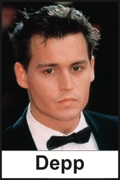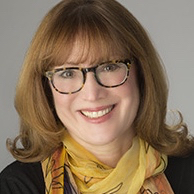Rascals case in brief
In the beginning, in 1989, more than 90 children at the Little Rascals Day Care Center in Edenton, North Carolina, accused a total of 20 adults with 429 instances of sexual abuse over a three-year period. It may have all begun with one parent’s complaint about punishment given her child.
Among the alleged perpetrators: the sheriff and mayor. But prosecutors would charge only Robin Byrum, Darlene Harris, Elizabeth “Betsy” Kelly, Robert “Bob” Kelly, Willard Scott Privott, Shelley Stone and Dawn Wilson – the Edenton 7.
Along with sodomy and beatings, allegations included a baby killed with a handgun, a child being hung upside down from a tree and being set on fire and countless other fantastic incidents involving spaceships, hot air balloons, pirate ships and trained sharks.
By the time prosecutors dropped the last charges in 1997, Little Rascals had become North Carolina’s longest and most costly criminal trial. Prosecutors kept defendants jailed in hopes at least one would turn against their supposed co-conspirators. Remarkably, none did. Another shameful record: Five defendants had to wait longer to face their accusers in court than anyone else in North Carolina history.
Between 1991 and 1997, Ofra Bikel produced three extraordinary episodes on the Little Rascals case for the PBS series “Frontline.” Although “Innocence Lost” did not deter prosecutors, it exposed their tactics and fostered nationwide skepticism and dismay.
With each passing year, the absurdity of the Little Rascals charges has become more obvious. But no admission of error has ever come from prosecutors, police, interviewers or parents. This site is devoted to the issues raised by this case.
On Facebook
Click for earlier Facebook posts archived on this site
Click to go to
Today’s random selection from the Little Rascals Day Care archives….
Click for earlier Facebook posts archived on this site
Click to go to
Today’s random selection from the Little Rascals Day Care archives….
Edenton Seven could’ve used a Johnny Depp
 Sept. 10, 2012
Sept. 10, 2012
“You saw those initial documentaries, you make a choice: Am I going to watch the thing and go ‘Wow, that’s really horrible,’ and go out and get a milkshake?”
– Johnny Depp, tracing the roots of his advocacy for the West Memphis Three
That could be me talking – except that the eye-opening documentaries for me were “Innocence Lost” rather than “Paradise Lost,” that I’m a retired newspaperman rather than a Hollywood actor and – most crucial – that I went out for a figurative two-decade milkshake run rather than responding immediately to the outrage I was seeing on screen. Hats off to WM3 advocates such as Depp, who moved quickly to challenge prosecutors every bit as recalcitrant as those in North Carolina.
Prosecutors Book Club, please take note
April 19, 2014
“Is it possible to so modify child forensic interviewing that the sorts of errors described by Ceci and Bruck are minimized?…
“The primary problem is that most prosecutors and most so-called mental health professionals do not stay current….
“How likely, for instance, is it that a copy of ‘Jeopardy in the Courtroom’ will be found on your favorite prosecutor’s desk?”
– From “A Review of a Review of ‘Jeopardy in the Courtroom’ by Stephen J. Ceci and Maggie Bruck” at falseallegations.com
….Is APSAC finally ready to apologize to wrongfully prosecuted victims?

janetrosenzweig.com
Dr. Janet Rosenzweig
Oct. 22, 2016
“At APSAC’s June Colloquium, Paul J. Stern gave a presentation that clearly acknowledged your organization’s role in fostering the ‘satanic ritual abuse’ day-care panic of the 1980s and early ’90s.
“Mr. Stern, a prosecutor and longtime APSAC official, was only illuminating from the inside a reality long recognized among virtually all respected professionals and academics.
“I am writing today to request that the American Professional Society on the Abuse of Children formally renounce its advocacy of the ‘satanic ritual abuse’ myth and apologize to its victims. The ‘misguided ideas’ cited by Mr. Stern not only supported wrongful prosecutions and incarcerations, but also profoundly misled children, parents and the public.
“The reputation of APSAC will remain tainted as long as it fails to make amends for this seminal part of its history. If the International Association of Chiefs of Police can apologize for ‘the actions of the past and the role that our profession has played in society’s historical mistreatment of communities of color,’ then surely APSAC can similarly mitigate the damages caused by its own actions.”
– From a letter I sent to Dr. Janet Rosenzweig, executive director, American Professional Society on the Abuse of Children
![]()
Board couldn’t see Betsy Kelly ‘minus her publicity’
Sept. 13, 2013
“I am urging you to treat Elizabeth Kelly as you would treat anyone else with the same case file. I am asking you to demonstrate that we are all ‘equal under the law.’ Any other inmate with the same sentence and clean record would have been eligible for parole the minute she walked through the gates of the prison…. I am appealing to you not to withhold that which she would otherwise likely receive — minus her publicity, minus the rhetoric of politicians. I am imploring you not to deal more strictly with her than with others simply because she is Elizabeth Kelly.”
– From a letter to the North Carolina Parole Commission by Jane W. Duffield of Raleigh (April 5, 1994)
The Parole Commission proved unable or unwilling to consider Betsy Kelly’s case “minus her publicity, minus the rhetoric of politicians.” Bill Hart, vengeful over her unwavering insistence that she was innocent, reneged on a plea agreement not to contest her release, and the Parole Commission obediently sent her back for seven more months of wrongful imprisonment.











0 CommentsComment on Facebook